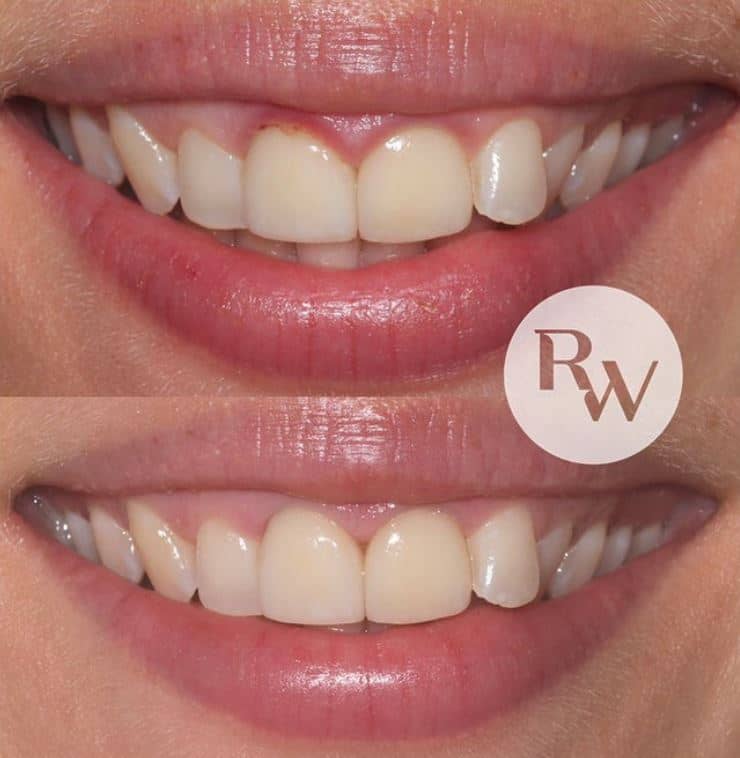How do I know if I’ve got gum disease?
10 January 2023

Can gum disease affect my general health?
The simple answer is yes, gum disease can affect your general health. The mouth is connected with the rest of the body. It is the doorway to the body, rather than a separate organ, and is the access point for bacteria to enter the bloodstream via the gums.
There are particularly strong associations between diabetes and heart disease. When considering diabetes, not only does gum disease have an effect on diabetic control, but it also increases the risk of diabetes in healthy individuals.
The good news is that treating gum/periodontal disease may have a positive impact on general health. So don’t ignore the signs of gum disease and take the necessary steps to ensure healthy gums. Remember, healthy gums = healthy body.
For more information on gum health, disease, dental, and articles, make sure to read our other blogs.
More information on periodontal can be found on the British Society of Periodontology and Implant dentistry website.

Can gum/periodontal disease treatment make a difference to my life?
Gum/periodontal disease can have a negative impact on your quality of life. For example, bad breath may affect your confidence to get close to someone, loose teeth may affect your ability to eat hard foods, tooth loss may affect your nutritional status and the teeth may change position leading to an unattractive smile.
Treating gum/periodontal condition will make a difference to the quality of your life and daily functions. If the condition is treated, you would not have to worry about bad breath, you could eat the foods you like and future tooth loss is prevented. Even individuals who initially don’t have any major symptoms from the condition often say that their mouth feels healthier and they feel better in themselves.
Make sure to read our other blogs to keep a check on your gums. Or contact us if you have any questions or feedback, or would like to book an appointment.
How well does gum/periodontal disease treatment work?
Gum/periodontal disease treatment works really well!
It’s not all doom and gloom when it comes to gum disease. The treatment for the condition is highly predictive and works very well. Of course, the earlier it’s treated the more predictable it is. The first line of treatment is usually ‘non-surgical debridement, which involves disinfecting the gum pockets, allowing them to heal and close up. Even for very advanced cases, there are many options to get the condition under control and ensure the mouth is healthy again.
Although gum/periodontal condition can’t be cured, it can be stabilised. Once it has been stabilised, life-long maintenance of health is simple.
Check out our other blogs if you want to learn more about your dental care. Or contact us if you have any questions or feedback, or would like to book an appointment.
Why are my gums bleeding during pregnancy?
Pregnancy changes your body and that includes your gums too! This means you are more at risk of gum disease and may experience signs of this such as bleeding gums. These signs should not be ignored, as gum disease treatment is safe, effective, and important during pregnancy. Pregnant women should be aware that dental X-rays can be undertaken and local anaesthesia can be delivered without additional risk either to the mother or the foetus. In fact, the risks of no treatment are much higher.
Even without any of the symptoms, if you’re pregnant, it’s always a good idea to get a gum screen and take the necessary precautions to prevent gum disease.
Check out our other articles if you want to learn more about your dental care. Or contact us if you have any questions or feedback, or would like to book an appointment.
Does gum disease run in families?
Genetics and underlying susceptibility play a big role in determining whether you suffer from gum/periodontal condition. Although the plaque/bacteria are the initial cause, your genetic makeup affects how you react to that plaque. For example, your response may be exaggerated if you are genetically more susceptible. Especially if you are young, have a severe disease, and have no other risk factors, this may be the central reason as to why you have developed the disease.
Even if gum disease runs in your family, it doesn’t mean the treatment won’t be successful. In fact, treatment for this is generally highly predictable.
Does my diet affect my gums?
Nutrition and diet have a role in gum/periodontal problems. An imbalance or deficiencies can increase the risk and severity of periodontal disease by affecting the body’s resistance and potential for repair.
Therefore, it’s important to have a healthy intake of fibre, fruit and vegetables and reduce the level of refined sugars to prevent dental disease and improve general health.
Can you cure gum/periodontal disease?
You can never really ‘cure’ gum/periodontal condition but you can treat and stabilise it. Once treated and the gums are healthy, you need to ensure life-long regular maintenance at home and with your hygienist to ensure you minimise any chances of relapse.
Check out our other articles if you want to learn more about your dental care. Or contact us if you have any questions, or feedback, or would like to book an appointment.
What if I leave my gums untreated?
If your gum/periodontal condition is left untreated, this can result in your teeth loosening up and eventual tooth loss. Other associated symptoms may also start to develop including bleeding gums, gum boils, bad breath, bad taste and painful gums/teeth.
You may get very few symptoms until it is advanced so it is important to catch it early, as it’s a preventable and treatable condition.
Are lasers needed to treat my gum?
The simple answer to the question above is no.
Laser is an acronym for Light Amplification by Stimulated Emission of Radiation. The evidence base for using lasers in the treatment of periodontal/gum problems is unclear. However, what we do know is that they do not have any additional advantages over conventional treatment.
Conventional therapy has been used predictably for many decades and often those who use lasers will charge you more for the treatment, but the outcome will be the same as that for conventional therapy. So further well-designed studies are required before the widespread use of lasers in periodontology can be advocated.
If I have gum disease is it safe to have dental implants?
Dental implants have become a popular choice for replacing missing teeth. Implants are manufactured from titanium and can support crowns, bridges or dentures.
For patients with advanced gum/periodontal problems, it is often tempting to want to replace loose teeth with implants. The first thing to remember is that nothing beats your own tooth! So wherever you can, you should always try and save your natural tooth, even if it is loose.
Check out our other articles if you want to learn more about your dental care. Or contact us if you have any questions or feedback, or would like to book an appointment. Follow us on Instagram to get updated on our latest treatments!



